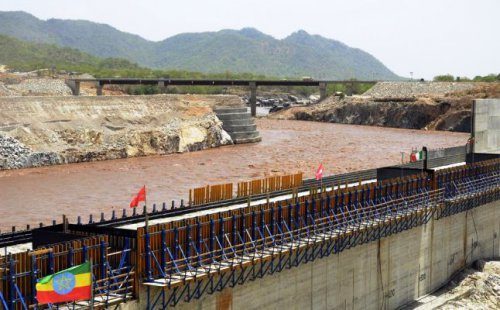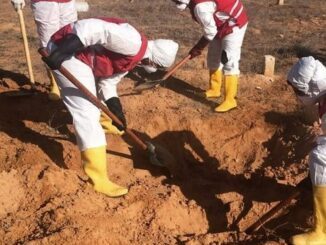
Egypt and Sudan suspended talks with Ethiopia after it proposed linking a deal on its newly constructed reservoir and giant hydroelectric dam to a broader agreement about the Blue Nile waters that would replace a colonial-era accord with Britain.
The African Union-led talks among the three key Nile basin countries are trying to resolve a years-long dispute over Ethiopia’s construction of the Grand Ethiopian Renaissance Dam on the Blue Nile.
Ethiopia says the dam will provide electricity to millions of its nearly 110 million citizens, while Egypt, with its own booming population of about 100 million, sees the project as an existential threat that could deprive it of its share of the Nile waters. The confluence of the White Nile and the Blue Nile near the Sudanese capital of Khartoum forms the Nile River that flows the length of Egypt.
A colonial-era deal between Ethiopia and Britain effectively prevents upstream countries from taking any action — such as building dams and filling reservoirs — that would reduce the share of Nile’s water which the deal gave downstream countries, Egypt and Sudan. Blue Nile is the source of as much as 85% of the Nile River water.
Sudan’s Irrigation Minster Yasir Abbas said that Ethiopia’s proposal on Tuesday threatened the entire negotiations, which had just resumed through online conferencing Monday.
Sudan and Egypt object to Ethiopia’s filling of the reservoir on the dam without a deal among the three nations. On Monday, the three agreed that technical and legal teams would continue their talks on disputed points, including how much water Ethiopia would release downstream in case of a major drought.
Ethiopia on Tuesday floated a proposal that would leave the operating of the dam to a comprehensive treaty on the Blue Nile, according to Abbas, the Sudanese minister.
“Sudan will not accept that lives of 20 million of its people who live on the banks of the Blue Nile depend on a treaty,” he said. He said Sudan would not take part in talks that link a deal on teh dam to a deal on the Blue Nile.
With the rainy season, which started last month, bringing more water to the Blue Nile, Ethiopia wants to fill the reservoir as soon as possible.
Ethiopia’s irrigation ministry said Wednesday the proposal was “in line” with the outcome of an African Union summit in July and Monday’s meeting of the irrigation ministers. It said the talks are expected to reconvene on Aug. 10, as proposed by Egypt.
Ethiopian Irrigation Minister Seleshi Bekele tweeted Tuesday that his country would like to sign the first filling agreement as soon as possible and “also continue negotiation to finalize a comprehensive agreement in subsequent periods.”
The issue of Ethiopia’s dam also threatens to escalate into a full-blown regional conflict as years of talks with a variety of mediators, including the U.S., have failed to produce a solution.



